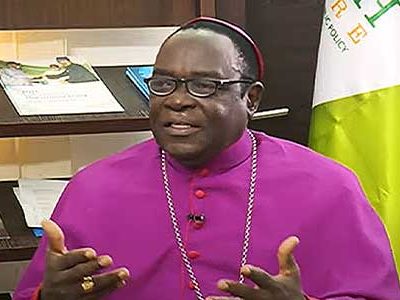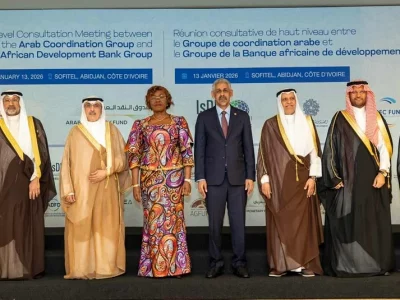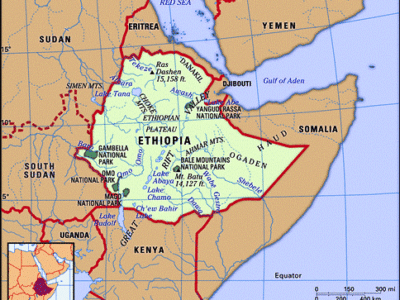By Zekeri Momoh
“THE FAILURE TO DELIVER SOCIAL SERVICES, THE ENDEMIC PROBLEM OF POWER SUPPLY, THE FAILURE TO DEFEAT BOKO HARAM AND THE COLLAPSE OF INFRASTRUCTURE ARE ALL LINKED TO PUBLIC SECTOR CORRUPTION ON A GRAND SCALE.”
Nigeria is consistently ranked as one of the most corrupt countries. A commitment to fighting corruption was the dominant election campaign promise of President Buhari’s which is a key pillar and shows optimism of moving forward. In 2013, Nigeria ranked 144th of 177. Despite this, Nigeria has made little progress in the fight against corruption since 2009, actually slipping down the Transparency International Corruption Perceptions Index from 130th in 2009 to 136th in 2015. Nigeria also fell from 35th out of 53 countries in 2009 to 39th out of 54 in 2014 in the Mo Ibrahim Index of African Governance.
“Can a citizen seek succor in law courts if he/she believes government has failed to “strive to eradicate illiteracy; … provide (a) free, compulsory and universal primary education; (b) free secondary education; (c) free university education; and (d) free adult literacy programme?”

Nigeria constitution
A study by PriceWaterHouseCoopers (PWC) suggests that the cost of corruption in Nigeria equated to roughly $1,000 per person in 2014, and could be nearly double that by 2030 up to 37% of GDP. The failure to deliver social services, the endemic problem of power supply and the collapse of infrastructure are all linked with corruption and bad governance at all levels in Nigeria.
According to DFID’s 2016 written evidence: “The failure to deliver social services, the endemic problem of power supply, the failure to defeat Boko Haram and the collapse of infrastructure are all linked to public sector corruption on a grand scale. An independent report by the Natural Resource Governance Initiative in August 2015 estimated as much as US $32 billion was lost to corruption during the 6 year administration of former President Jonathan.”
Despite efforts at curbing the muster called corruption in Nigeria it seems the trend is on the increase. This suggests that political will is a necessary but not sufficient condition for turning the tide against corruption in Nigeria. One major concern in the current anticorruption fight in Nigeria under the leadership of President Muhammadu Buhari is that despite determined efforts of anticorruption agencies and widespread uncovering of phenomenal corruption in the public services, actual convictions of indicted persons are few not because of inadequate legislations but existence of other laws that serve to handicap anticorruption agencies in the prosecution of corruption cases in the courts. It has been suggested in the literature that this may be due to lack of complete independence of anticorruption agencies, politicization of the anticorruption fight and inefficiency of the judiciary.
But an analysis of the 1999 Constitution of the Federal Republic of Nigeria (as amended 2011) and laws that govern the operations of ministries, departments and agencies shows that there exist in the body of Nigeria laws certain legislation that unintentionally inhibit transparency and accountability that help effective prosecution of corruption cases.
“[In] The 1999 Constitution of the Federal Republic of Nigeria … and laws that govern the operations of ministries, departments and agencies, … there exist … certain legislation that unintentionally inhibit transparency and accountability that help effective prosecution of corruption cases.”

Fight corruption campaign
One ways the 1999 Constitution of the Federal Republic of Nigeria (as amended 2011) have encourage corruption in Nigeria is spelt out in Chapter II Fundamental Objectives and Directive Principles of State Policy section 18 sub-section 3 which states that: “Government shall strive to eradicate illiteracy; and to this end Government shall as and when practicable provide (a) free, compulsory and universal primary education; (b) free secondary education; (c) free university education; and (d) free adult literacy programme”.
“Sadly too, because the constitution lays emphasis on “as and when practicable,” it makes the citizens defenseless as to insist that elected officials live up to the required mandate for the provision of social services to the citizens.”
The point in this section of the constitution is the phrase “… Government shall as and when practicable”. The implication of this section of the constitution is that it enables elected leaders to shy away from their responsibility. The question is when will it be “…as and when practicable”. This section of the constitution is vague and subject to various interpretations by legal experts.
It is on this basis that most government in Nigeria neglect the funding of education in Nigeria as it is almost impossible for any government be charged to court for failure to provide free education. Moreover, this further explains why resources that are meant to develop the education sector are diverted for personal gains and provide the hallmark for corruption in the educational sector in Nigeria.
Sadly too, because the constitution lays emphasis on “as and when practicable,” it makes the citizens defenseless as to insist that elected officials live up to the required mandate for the provision of social services to the citizens. In a way too, citizens are left to dither on whether they have the constitutional rights to sue government and constituted authorities who fail to meet their promise for economic and social developments. The constitutions and other body of laws are silent as to just when citizens can sue those in power for not delivering social services. For example, can a citizen seek succor in law court if he/she believes government has failed to “strive to eradicate illiteracy; … provide (a) free, compulsory and universal primary education; (b) free secondary education; (c) free university education; and (d) free adult literacy programme” ?
On the whole, a critical assessment of anticorruption legislations and constitutional and other legal provisions on accountability and transparency that derive it powers from the constitution have shown that for effective prosecution of corruption cases, care must be taken to amend the laws and constitutional provisions that prevent accountability and transparency.

Zekeri Momoh is Executive Director, Global Network for Advancement of Integrity Transparency and Accountability (GNAITA) Abuja-Nigeria. This piece makes his debut on the Editorial Think Tank of Baobab Media. Momoh may be reached: [email protected]
Cover Image courtesy: Premium Times

















